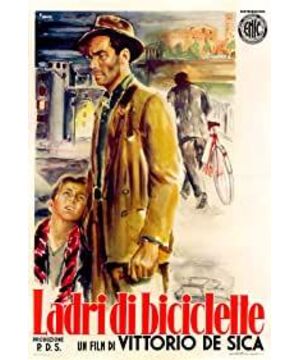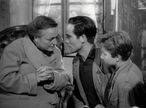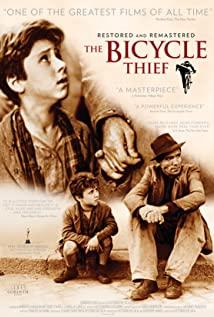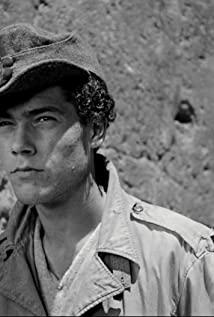Vittorio de Sica, the director of "The Bicycle Thief" and "Tears of the Wind", can't avoid such a term, that is, the Italian neorealist film movement. Voltaire once said: "Without great difficulties, there will be no great cause." Throughout the history of film at home and abroad, every film movement is closely related to the reality at that time, and the same is true for the Italian neorealist film movement. The specific political and economic background gave birth to this movement. Before 1861, all parts of Italy were divided into dozens of independent city-states of different sizes. It was not until 1861 that the national reunification was completed. At this time, it was only a few decades before the outbreak of World War II. The traditions, languages, and personalities of the people in the region have not been unified, which led to a large part of Italy's weak armament and economic strength during World War II. The end of World War II made Italy, which already had various social problems, even worse, and its economy was even worse. Recovery is slow and people live in misery. It is against such a social background that Italian neorealism came into being, focusing on the current reality of Italian society and becoming the most important film movement in the West in this historical period.
"Bicycle Thief" and "Tears of a Candle" are both outstanding works during the Italian neo-realist film movement. Among them, "Bicycle Thief" is regarded as the peak of director De Sica's personal film art career. In terms of shooting, both works were shot completely in real scenes, and the camera moved with the movement of the protagonist, instead of using the traditional drama crew setting mode, which practiced the period of Italian neorealism "carrying the camera to the street" " slogan. The use of a large number of long shots is also a highlight of the two works. They give up the frequent use of shot splicing, and strive to minimize the sense of intentionality and shooting, so as to seek to give the audience a feeling that the scene of the film is happening in reality, so as to avoid This leads to an unrealistic feeling for the audience in the viewing experience.
In the selection of actors, the director uses non-professional actors. The protagonist of the film "The Bicycle Stealer" is an ordinary unemployed person in real life, while the protagonist of "Wind and Candle Tears" is actually a university professor in real life. In terms of performance, the actors have not received long-term systematic professional training, nor did they rely on the performance model under the guidance of theory, but integrate the real emotions they see and feel in the real society into the script, which greatly reduces the number of actors. The sense of acting, thus highlighting the authenticity.
In terms of structure and narrative, a simple and intuitive feeling is pursued. No complicated narrative techniques such as flashbacks and interludes are used. The narrative structure of the film "The Bicycle Stealer" can be simply described. It tells the story of the protagonist buying a car, losing it, looking for it and finally stealing it, while "Wind Candle Tears" tells the protagonist's story. The story of seeking death and then giving up after being driven out by the landlord, both films are narrated according to the natural time of the development of the story. In terms of dramatic conflict and suspense, "The Bicycle Stealer" is even better. The protagonist leaves the bicycle three times, and the director also set up three suspense. In these settings, the domestic film "Seventeen-Year-Old Bicycle" is similar to it. In the design of the ending, neither of the two films gave the protagonist any obvious fate arrangement. At the end of the film "The Bicycle Thief", the protagonist was caught stealing a car and was released. The last scene was the crowd of people coming and going. Give up seeking death, the last shot is the children who play football. Although they were all redeemed at the last moment, they did not have a clear choice for the future. Just like the society at that time, ordinary people lived strong, and the front was vague, welcoming their own ignorance. Disaster or hope.
According to a survey conducted by the European Commission on Fundamental Human Rights in 2015, Italy is the country with the most serious racial discrimination in Europe, and in a special historical period, the social phenomenon of discrimination is more manifested in the discrimination of high-class people within the same race against low-class people , post-war Italy, was a period in which the toiling masses lost most of their human rights. In the film "The Bicycle Stealer", the window for purchasing goods from the poor is closed and narrow. After the protagonist's car is stolen, he is cruelly refused to seek help from the police, and the law cannot help him. Some people have an ordinary meal in their lives, and their sons are treated with contempt. This situation arises not only because of lack of sympathy, but also because of the discrimination caused by the arrogance in the bones of most high-class people, and the loss of various human rights. Caused him to give up his inner order. When he mistakenly thought that his son was in danger, he understood the importance of family to him and rebuilt his inner order. He even pinned his hopes on the so-called "psychic" whom he had never trusted before. , and the heavy blows in the future made him finally make an act of ignoring education issues, ignoring legal ethics, and completely breaking his inner order - stealing a car. In the film "Tears of the Wind", the protagonist never chose to break his inner order. Even if he chose to die in the end, he did not choose to commit a crime. This depends on the different character settings. The protagonist of "Tears of the Wind" has a higher education level. But from the perspective of tragic fate, even if there is a slight difference, the degree of difficulty in life is similar. There is an interesting scene in the film "Wind Candle Tears". The maid uses the burning branches to drive away the swarms of ants. The maid is strong for the ants. On the one hand, this corresponds to the demonstrators who were dispersed by the police at the beginning. For the masses, the police are also the stronger side. This implies that the working class people in the society at that time were only as small as ants, and their resistance to the society was so weak. They had only hypocritical human rights, and their fate was not completely in their own hands. The dominance of society blows with the wind.
Italy is a typical Catholic country. About 90% of Italians are Catholics. Director De Sica is an Italian, and the church has become a scene that often appears in his movies. However, under the influence of the real background, the church is quiet. The peaceful appearance hides the pain and escape of many ordinary people, making it a sanctuary-like symbol. De Sica has had a strong affection for drama and film since he was a teenager. His first four films were all in the traditional Italian style. Until he met the famous screenwriter Cesar Zivatini, their great cooperation produced a new Italian reality. Two of the most representative films in the film movement - "The Shoe Shine Boy" and "The Bicycle Stealer", this persistent pursuit led him to overcome difficulties and never give up on the road of creation. In the film "Shoe Shine Boy" After the release of "The Bicycle Stealer", he was criticized for insulting the country for reflecting the social status quo. This did not stop him from continuing to expose social reality. There are many good works, such as "The Bicycle Thief" released later Wind Candle Tears". In addition to being an excellent director, De Sica is also an excellent non-professional actor, which makes him more handy when directing non-professional actors. Of course, these non-professional actors also contributed in the film. Wonderful acting.
Rossellini once defined Italian neorealist cinema in a short sentence: "It is life itself." So to this day, we from different times and countries can still reap the touching and touching experiences in films such as "The Bicycle Thief". think.
View more about Bicycle Thieves reviews











